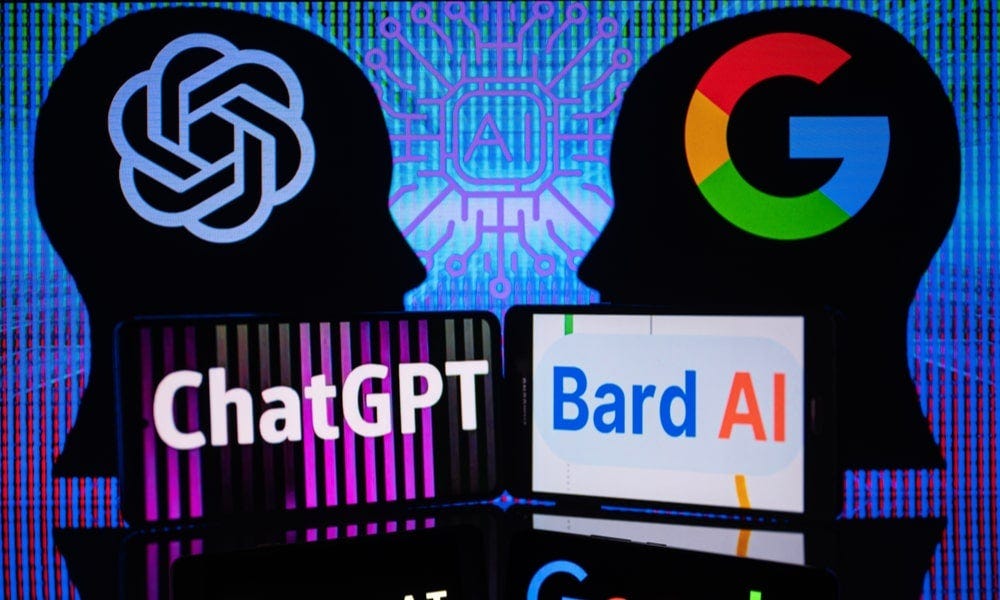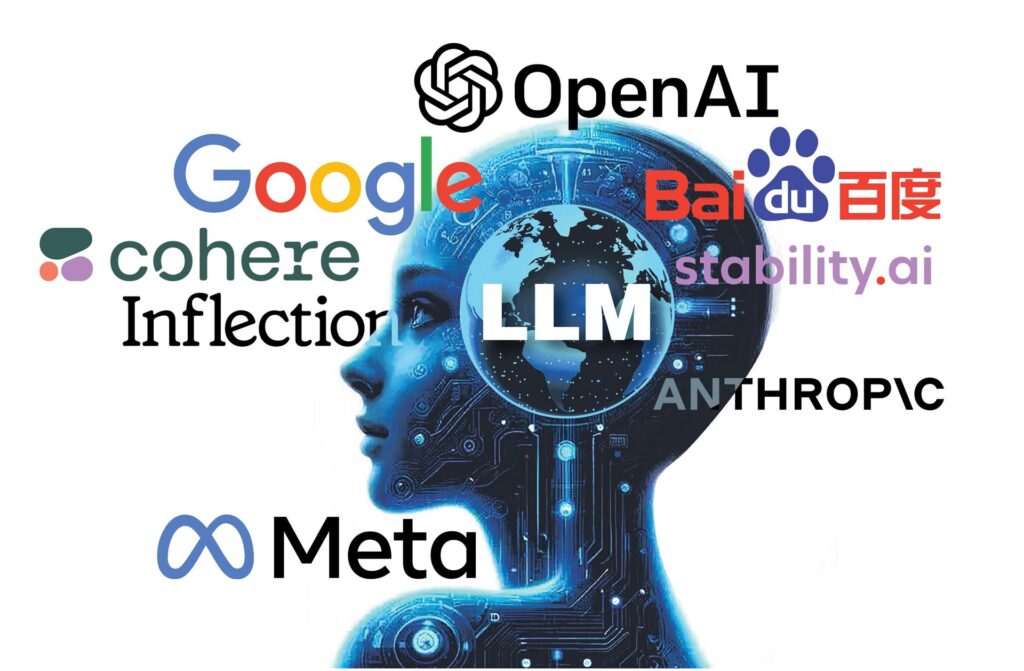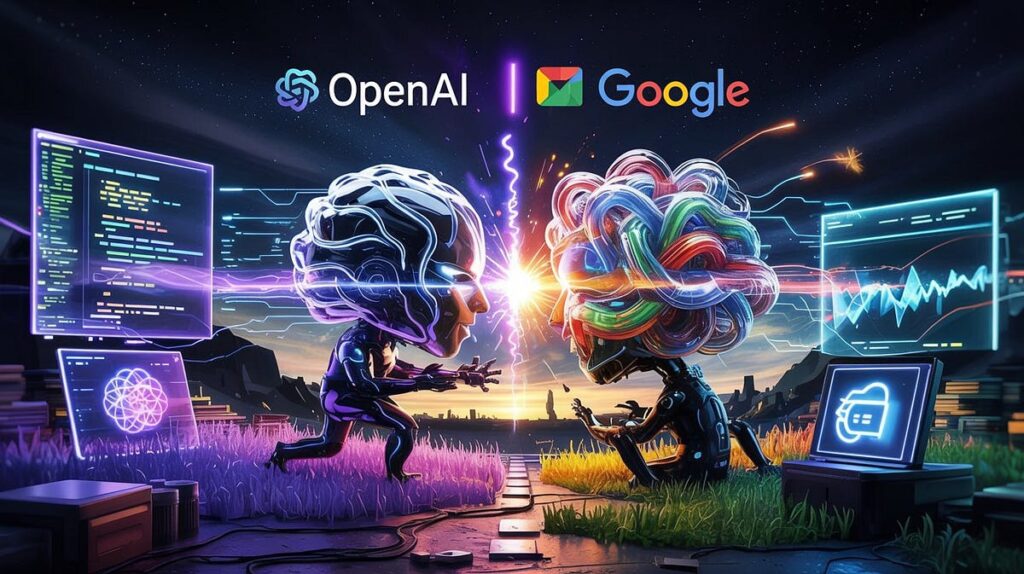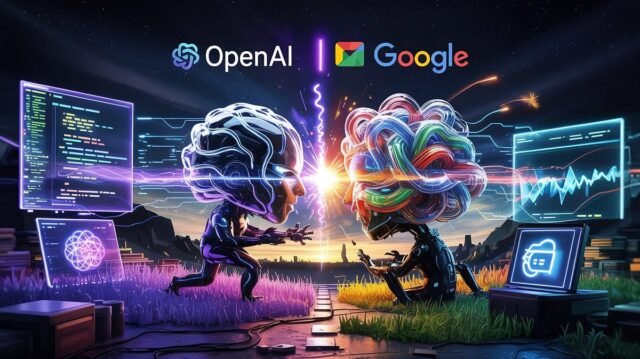In an era where artificial intelligence is reshaping nearly every corner of society, its influence in education is quickly turning into a competitive domain for the world’s leading AI developers. Today, education becomes a new battlefield in the AI war between OpenAI and Google, as both giants roll out tools designed to win over students, educators, and institutions — with long-term stakes far beyond classroom walls.
Table of Contents

A Pivotal Launch: OpenAI’s Study Mode
Just today, OpenAI unveiled Study Mode for ChatGPT—a feature engineered not as a shortcut for homework, but as a deliberate, interactive learning companion. Instead of providing direct answers, the mode encourages students to reflect, engage, and learn through Socratic questioning, structured walkthroughs, hints, and mini‑quizzes—all designed to scaffold deep understanding rather than rote response.
Thanks to input from over 40 educational institutions and pedagogy experts, Study Mode is available now to all ChatGPT users—Free, Plus, Pro, and Team—with a forthcoming rollout for the ChatGPT Edu platform in the coming weeks. With this, OpenAI aims to reposition ChatGPT from a mere homework helper into a trusted academic coach.
Google’s Response: A Gemini-Fueled Learning Ecosystem
Across the aisle, Google has responded in kind. It has introduced Gemini for Education, embedding its language model into learning tools that integrate directly with Google Search and other study aids. This marks the company’s explicit strategy to become the go‑to platform for student research and discovery.
These efforts are more than feature updates—they reflect a broader ambition: to make younger users comfortable with AI tools such as Gemini early in life, to retain their loyalty into future careers.
A Clash of Titans: Strategic Implications
OpenAI and Google recognise that capturing the tools students use now could tether them to those platforms long term. As a result, education has transformed from a niche outreach channel into a strategic battleground in the broader AI ecosystem.
For OpenAI, Study Mode represents not only defensive positioning against accusations of enabling academic dishonesty, but also an offensive bid to embed ChatGPT as daily ed‑tech infrastructure. Launching programs such as a new partnership with Instructure’s Canvas platform, OpenAI is enabling educators to build custom AI tutoring and grading tools directly within the learning management system used by more than 8,000 universities globally. Importantly, schools retain ownership of the student data and interactions, mitigating privacy concerns.
Meanwhile, Google is tightening its grip on its existing ecosystem of Search, Docs, and classroom tools, positioning Gemini as the natural AI companion inside the workflows teachers and students already use daily.
Enabling the Ecosystem: Educational Partnerships
Beyond their in‑house products, both companies are investing heavily in ed‑tech initiatives. OpenAI, Microsoft, and Anthropic have backed a $23 million National Academy for AI Instruction, aimed at training K–12 educators in AI pedagogy. The plan: equip approximately 400,000 teachers over the next five years with skills to responsibly integrate AI into lesson planning and assessment—from New York City and beyond.
While framed as teacher empowerment, critics warn of potential commercial influence over school curricula. Nonetheless, proponents see it as a necessary step to bridge the gap between fast‑moving AI innovation and slower‑moving educational institutions.

The Stakes: Academic Integrity, Learning Outcomes, and Economic Shifts
Academic integrity remains a central concern. Critics have argued for banning AI tools outright, citing cheating rates, plagiarism, and erosion of critical thinking skills. Indeed, UK schools reported nearly 7,000 AI‑related violations in the 2023–24 academic year—a dramatic rise that highlighted systemic weaknesses in enforcing bans.
Study Mode aims to address this by walking a tightrope: providing help without doing the thinking for students. But usage is optional and mitigations for misuse are limited, raising concerns about how consistently it will be used as intended.
Meanwhile, the rapid adoption of free AI tools has severely disrupted the ed‑tech market. Companies like Chegg have seen a sharp drop in traffic and revenues directly attributed to AI-powered alternatives like ChatGPT and Google’s AI Overviews. Chegg recently reported layoffs of about 22% of its workforce as a response to this shift. Venture capital investments also plunged from $17.3 billion at the pandemic’s peak to just $3 billion in 2024, signalling a broader recalibration in the education investment landscape.
Ethical Considerations and Equity Concerns
As both companies escalate their educational competition, ethical and equity challenges loom large. AI tools often carry biases rooted in their training data and may inadvertently disadvantage marginalised learners. Moreover, access to AI tutoring is uneven, raising concerns that these technologies might widen existing disparities rather than close them.
Educators stress the importance of AI literacy, ensuring students understand what AI can and can’t do. Some universities are building curricula around this, covering ethics, bias, and real‑world AI applications, blending technical instruction with social context.
What Comes Next?
As OpenAI builds upon Study Mode—adding rich visuals, tracking progress, and refining personalised pathways—and as Google continues to embed Gemini deeper into Search and Classroom tools, the competition will likely intensify.
- Further Classroom Integrations: Expect deeper ties to education platforms, LMS systems, and school-admin systems.
- Expanded Pedagogical Tools: Structured lessons, quizzes, and tutors powered by AI are next-frontier enhancements.
- Policy and Institutional Responses: Schools and universities will need to define clear rules around AI use, balancing innovation and integrity.
This is more than a tech race—it’s a battle for future minds. As education becomes a new battlefield in the AI war between OpenAI and Google, students, educators, and institutions are the terrain, and the lessons learned today will shape the tools of tomorrow’s workforce.

TL;DR
- OpenAI launched Study Mode in ChatGPT to offer guided, Socratic‑style learning rather than outright answers.
- Google responded with Gemini for Education and deeper AI integration within Search and school tools.
- Both firms are vying for early loyalty among students and educators, with implications for future AI adoption.
- Broader investments in teacher training aim to democratize AI literacy, though questions about commercial influence persist.
- Academic integrity, equity, and role displacement remain central tensions as AI reshapes education.








































